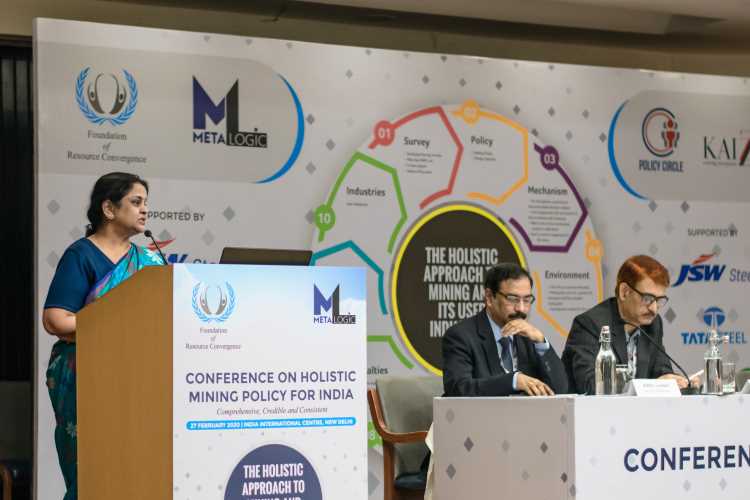Rationalisation of the bidding process and the tax regime can make India’s mining industry globally competitive, said Ishtiyaque Ahmed, advisor minerals, NITI Aayog. The industry could boost the country’s economic growth by 1.5-2 percentage points by supporting user industries and generating employment opportunities, he told a conference on a holistic mining policy for India, organised by the Foundation of Resource Convergence in New Delhi.
“The mining sector is hindered by the complex tax system and the high costs arrived at by the competitive bidding process, Mr Ahmed said.
India is witnessing very high unemployment rates. Mining sector can contribute in employment generation as it is a labour-intensive industry, said former steel secretary Aruna Sharma while initiating the discussion. “It is time to develop a robust, jerk-free cycle of investment,” she said.
READ: ‘Mining policies must have certainty, clarity and consistency’
The industry’s contribution to the country’s GDP id just 1.53%, which is too low compared with the numbers for other mineral-rich countries like South Africa and Australia. India is heavily dependent on imports despite being a mineral-rich country. The industry is affected by lack of investment in exploration, a complex system of high taxes and policy inconsistencies in the sector. The conference highlighted the need for a holistic approach that will help the industry attain its full potential. The conference was attended by senior government officials, industry brass and economists.
Indian economy is passing through a difficult phase. The government expects the economy to expand 5% in the current financial year, the slowest pace since the global meltdown of 2008-08. The economy grew 6.8% in financial year 2018-19.
MV Subba Rao, chairman and managing director of public-sector miner KIOCL Ltd, called for faster clearances to help the industry stay competitive. He said the national mineral policy has rightly identified the priorities — higher domestic output, sustainable mining, engagement of local population and transparent process for clearances.
The competitive bidding process, introduced recently after a Supreme Court judgement calling for transparency, has resulted in a huge spike in the cost of minerals, in some cases up to 2.75 times the benchmark price.
Talking about the increasing awareness of the environmental impact of the industry, VR Sharma, managing director of Jindal Steel and Power Ltd, said coal and iron ore will not be used beyond 2050-2060. “Iron ore and coal are not the future, but the present,” he said.
BRV Susheel Kumar, director, mining and geology department, government of Telangana, called for rationalisation of penalties in the sector. “Currently, if a miner is found to be mining without a lease or out of mining area allocated, he is proceeded under section 21(5) of the Environment Protection Act, which constitutes a ‘stop mining’ action. Instead, he should be proceeded under section 15-19 of the Act,” he said.

